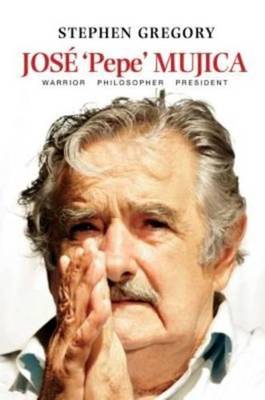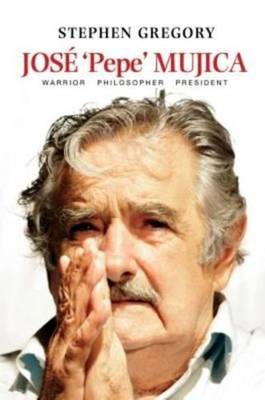
- Afhalen na 1 uur in een winkel met voorraad
- Gratis thuislevering in België vanaf € 30
- Ruim aanbod met 7 miljoen producten
- Afhalen na 1 uur in een winkel met voorraad
- Gratis thuislevering in België vanaf € 30
- Ruim aanbod met 7 miljoen producten
Zoeken
€ 32,45
+ 64 punten
Omschrijving
Toward the end of his administration (2010-2015), then Uruguayan President Jose 'Pepe' Mujica made headlines across the world with a couple of unusual speeches at United Nations assemblies in Rio de Janeiro and New York that were heatedly anti-capitalist, anti-consumerist, anti-globalisation and anti-climate change all fuelled by a libertarian socialist concept of freedom. This Sancho Panza-like figure was not only one of the few presidents of developing countries not to have somehow got personally rich while in government, but was known to live modestly as a practicing farmer and gave away two-thirds of his salary to his left-wing political organisation and to social housing projects. Even more bizarre was the fact that he had become president of the country whose government he had tried to overthrow forty years earlier in a revolutionary guerrilla war, an exploit for which he spent over a decade in military jails after being shot, severely wounded and tortured. This book is an introduction to the politics and philosophy of an unrepentant permanent militant whose evolution took him from defeated guerrilla warrior to successful presidential candidate without inconsistencies or betrayals, whatever his adversaries from right and left may claim. The study sets Mujica not only in his Uruguayan and Latin American context but also within an International Left that is coming out of mourning for the loss of so-called existing socialism as they search for solutions to lessen the damage done by rampant neoliberal economics and to find creative alternatives. Stephen Gregory's polemic is essential reading for all those interested in discovering Uruguay's unique position in a Latin America where the political right is in decline and leftist governments are moving to the middle ground.
Specificaties
Betrokkenen
- Auteur(s):
- Uitgeverij:
Inhoud
- Aantal bladzijden:
- 172
- Taal:
- Engels
Eigenschappen
- Productcode (EAN):
- 9781845197896
- Verschijningsdatum:
- 2/11/2021
- Uitvoering:
- Paperback
- Formaat:
- Trade paperback (VS)
- Afmetingen:
- 150 mm x 226 mm
- Gewicht:
- 249 g

Alleen bij Standaard Boekhandel
+ 64 punten op je klantenkaart van Standaard Boekhandel
Beoordelingen
We publiceren alleen reviews die voldoen aan de voorwaarden voor reviews. Bekijk onze voorwaarden voor reviews.











